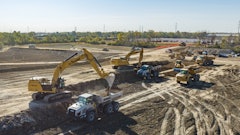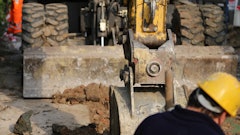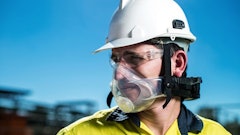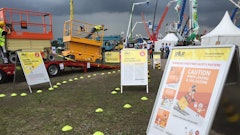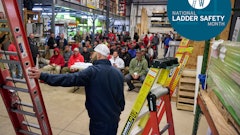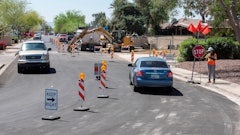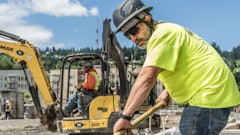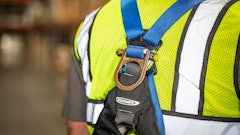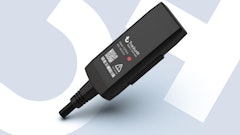

The Colorado Department of Transportation (CDOT), through its RoadX program, is launching a pilot program to test the use of Autonomous Impact Protection Vehicles (AIPV) from Royal Truck & Equipment in maintenance operations in live work zones. The goal is to demonstrate the technology, yield new findings on its application and enable further development, if needed, for the technology to become commercially available. It will be the first program involving the technology in the U.S.
Currently, the CDOT uses trucks with rear-mounted attenuators — also known as crash cushions and TMA trucks — in mobile work zones to act as a barrier to absorb or deflect vehicles that would otherwise hit workers or equipment. These “buffer trucks” protect workers and are usually the first and only crash barrier between the workers and the traveling public. However, they are designed to be hit, which puts the drivers of the trucks at a greater risk of being involved in a crash.
The autonomous IPV will operate without a driver by following a CDOT maintenance vehicle that has been outfitted with hardware to communicate its maneuvering and actions to the IPV. The autonomous system can then exactly match the motion of the leader vehicle, following at a constant, predetermined distance to provide consistent protection from work zone intrusion without placing a driver at risk.
A kick-off event, open to the media and DOT representatives, will be held August 18th on a closed road work zone in Fort Collins, CO. Autonomous technology technical staff from Royal Truck & Equipment, as well as company president Robert Roy, will be in attendance along with CDOT engineers and management staff. Educational materials about the utilization of the technology, how it operates without a driver behind the wheel, the test pilot program and other topics will be covered in literature handouts.
According to the Bureau of Labor Statistics, 1,435 road construction site deaths occurred in the U.S. from 2003-2014. Fourteen percent of those fatally injured were in the government sector, with state and local governments each accounting for about half of the fatalities. The AIPV Pilot Program will assess the technology's ability to help curb such statistics.
“We are happy to bring this technology to our industry,” said Roy. “Our company is committed to continuous improvement, great value and innovative products, and our initiative is to help save lives in work zones. We believe this technology will help do just that.”
A similar test program is planned by Colas Ltd. in London, England.
For more information, visit www.royaltruckandequipment.com/aipv.








